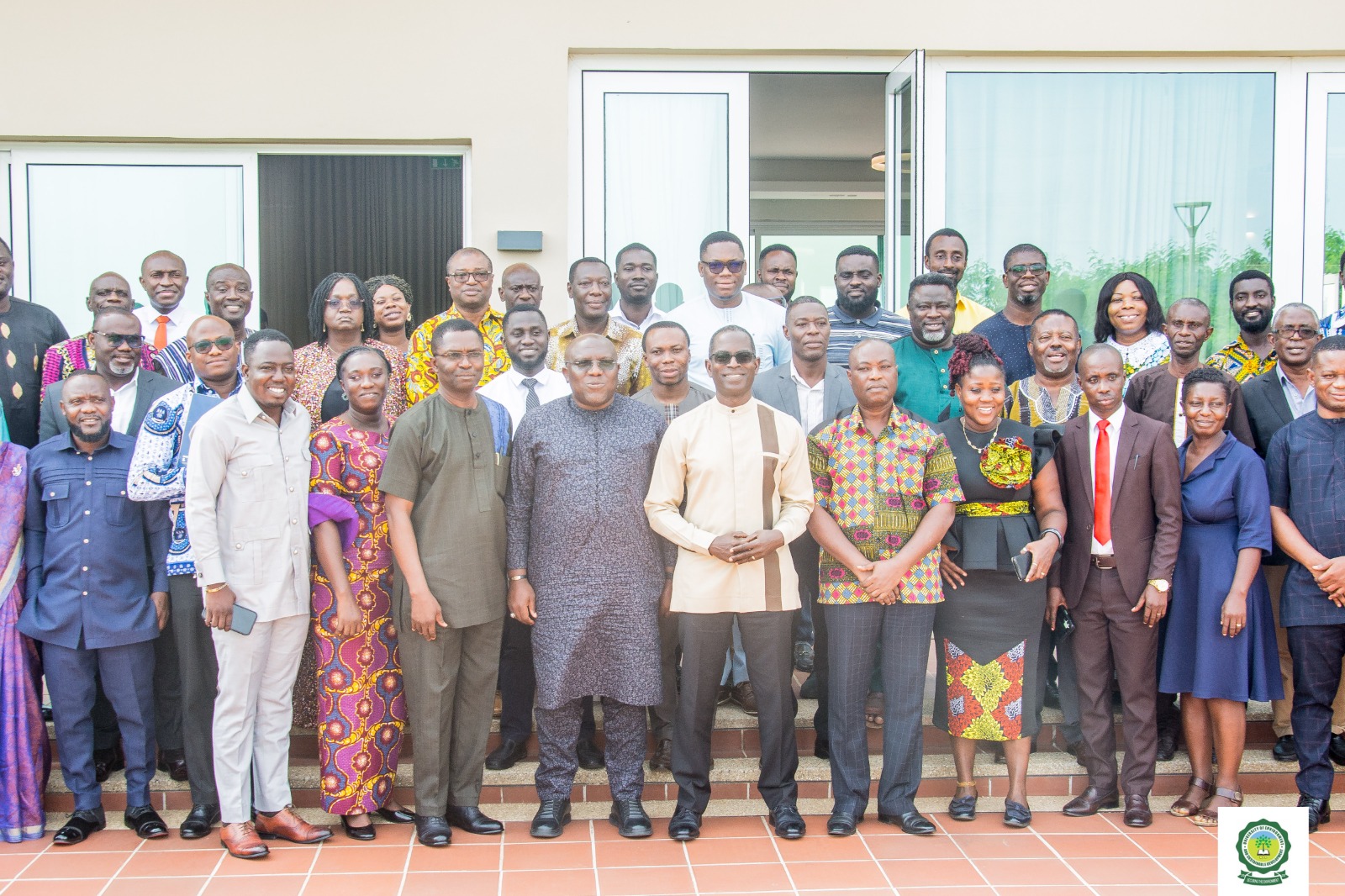A six-member team from the University of Environment and Sustainable Development (UESD) participated in the second interface meeting of the Eastern Regional Coordinating Council (ERCC) and tertiary institutions in the Region held on Wednesday, 13th December at the Ashesi University campus in Berekusu in the Akuapim South Municipality. The Vice-Chancellor, Prof. Eric Nyarko-Sampson, headed the group, which also comprised other faculty members and the Registrar, Mrs. Mary Abena Agyepong.
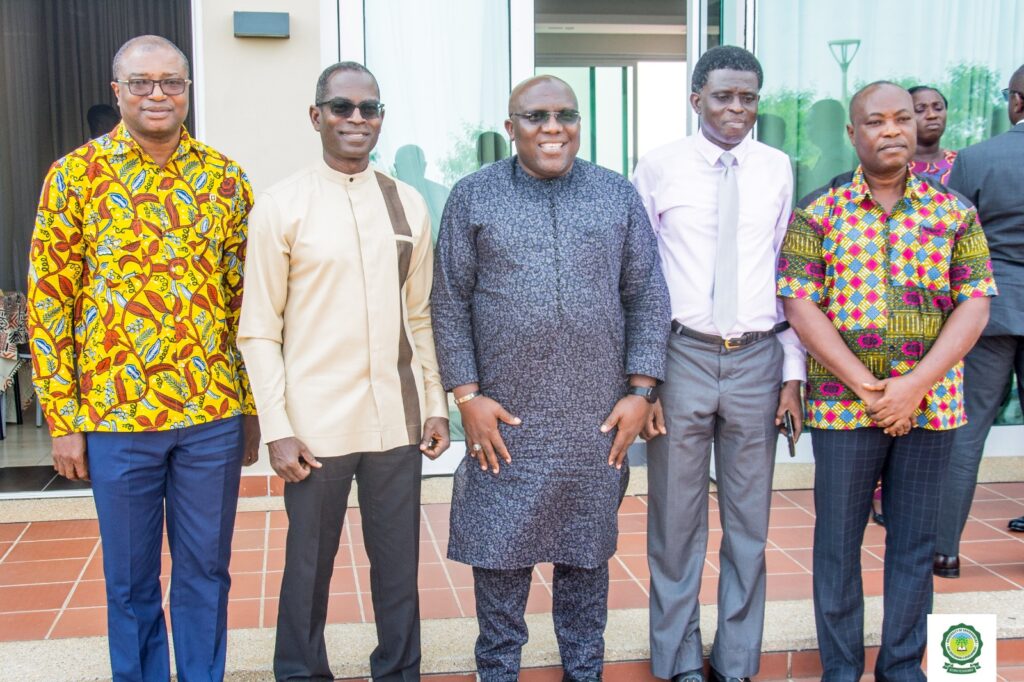
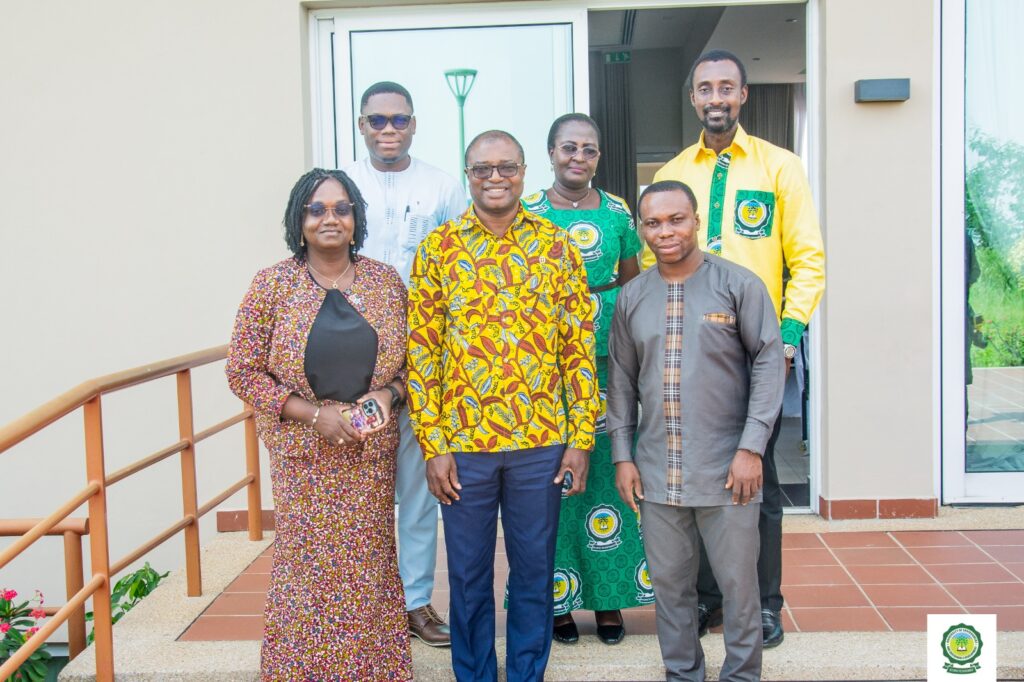
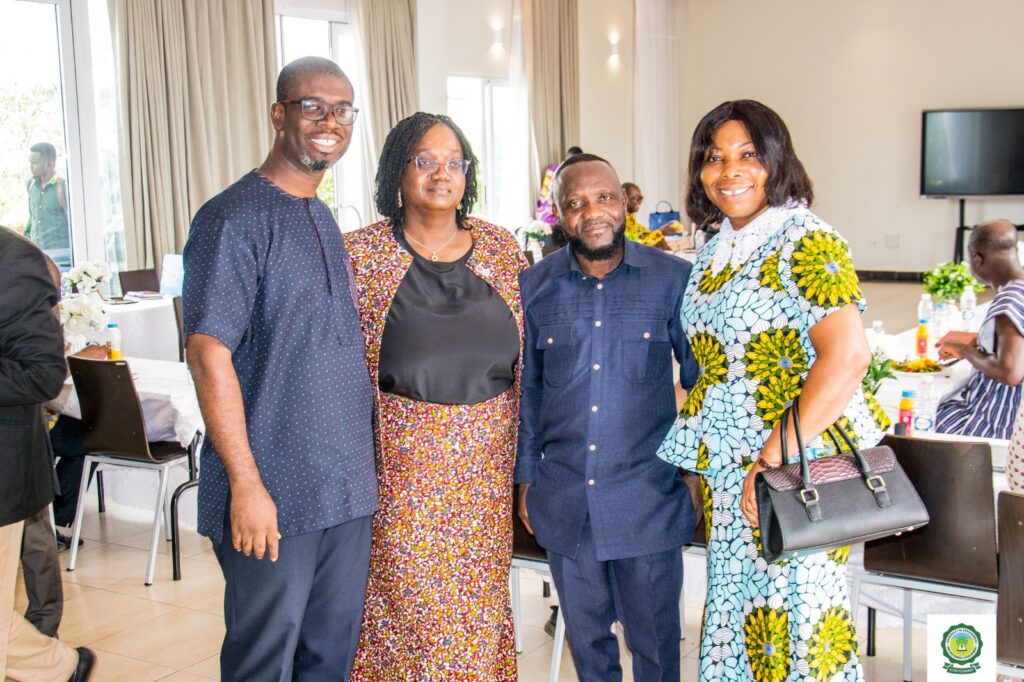
Managers and Senior Members from tertiary institutions in the Eastern Region came together to network during the meeting, organised by the ERCC and presided over by Regional Minister Hon. Seth Kwame Acheampong.
At the ERCC and tertiary institutions maiden meeting in April this year at Koforidua, it was agreed that, the Meeting will be a bi-annual affair with the aim of encouraging collaboration and partnership among the tertiary institutions in areas that will enhance tertiary education in the region.
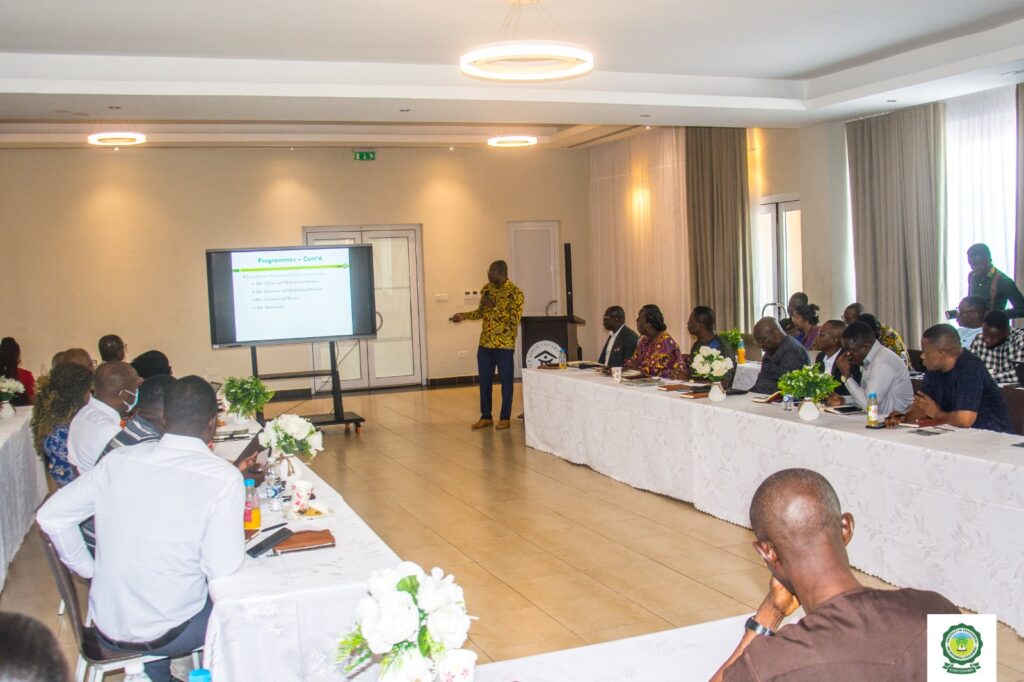
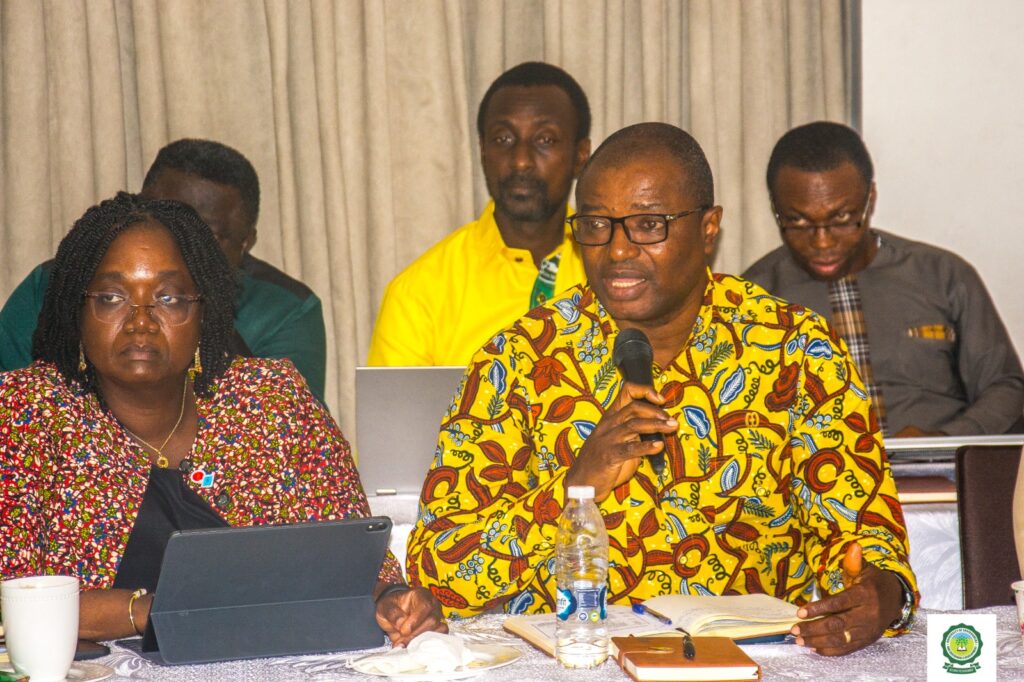
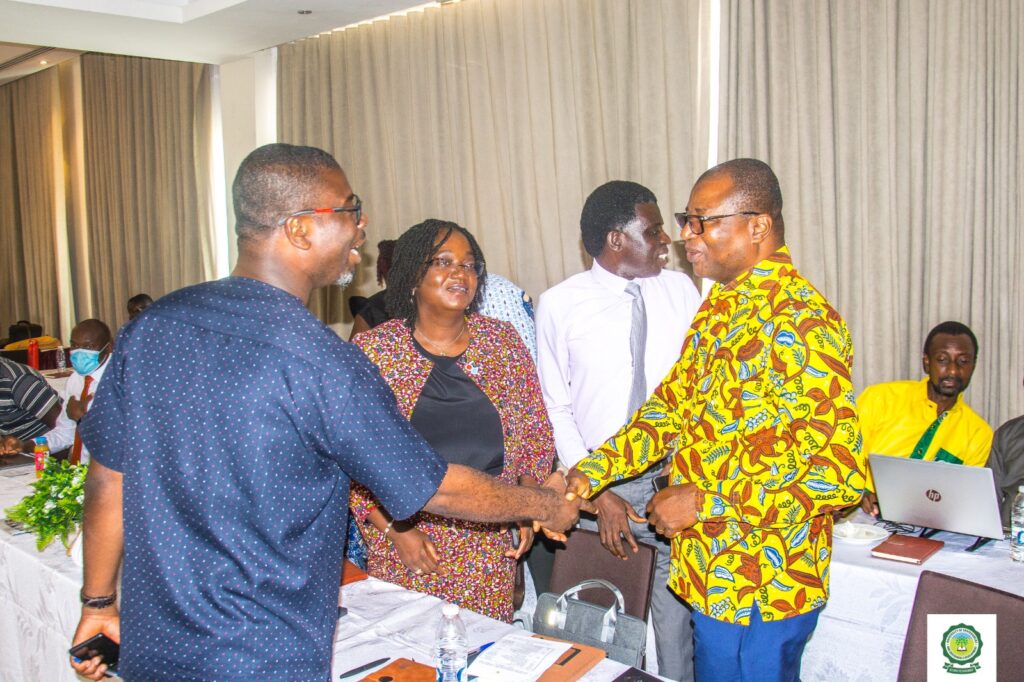
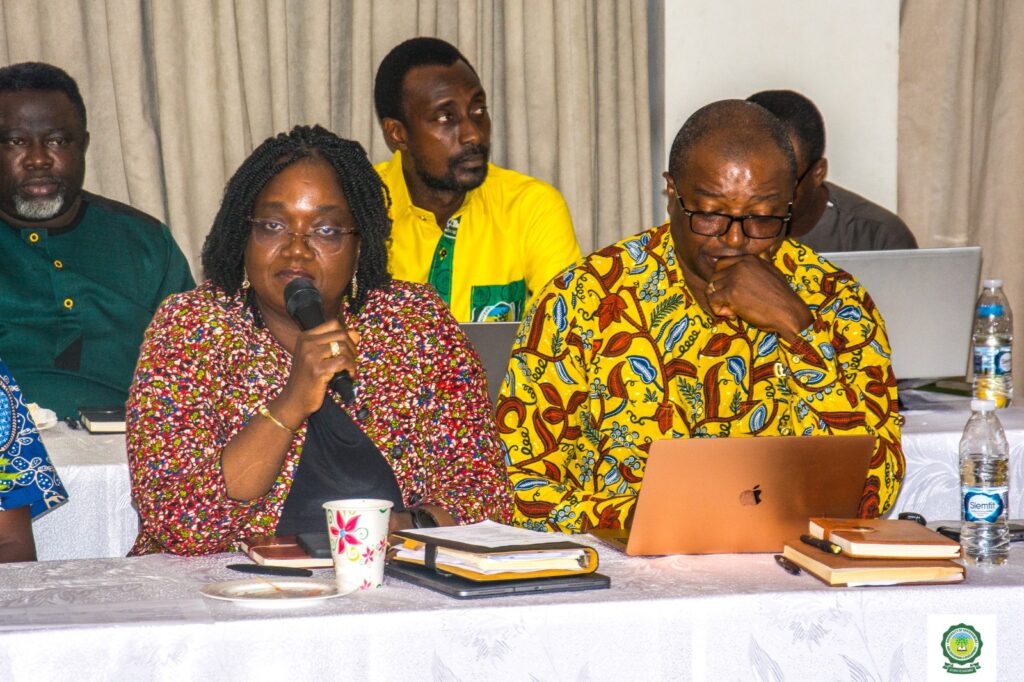
The Meeting at Berekusu was to therefore assess the progress made in the implementation of the commitments reached at the maiden meeting and the way forward.
In an address, the Regional Minister, Hon. Seth Acheampong stated that Universities’ Social Corporate Responsibility play a critical role in enhancing educational development and facilitating the community’s quality of life owing to their education, research and social interventions.
Accordingly, universities are encouraged to extend their services at the community level to influence desirable change.
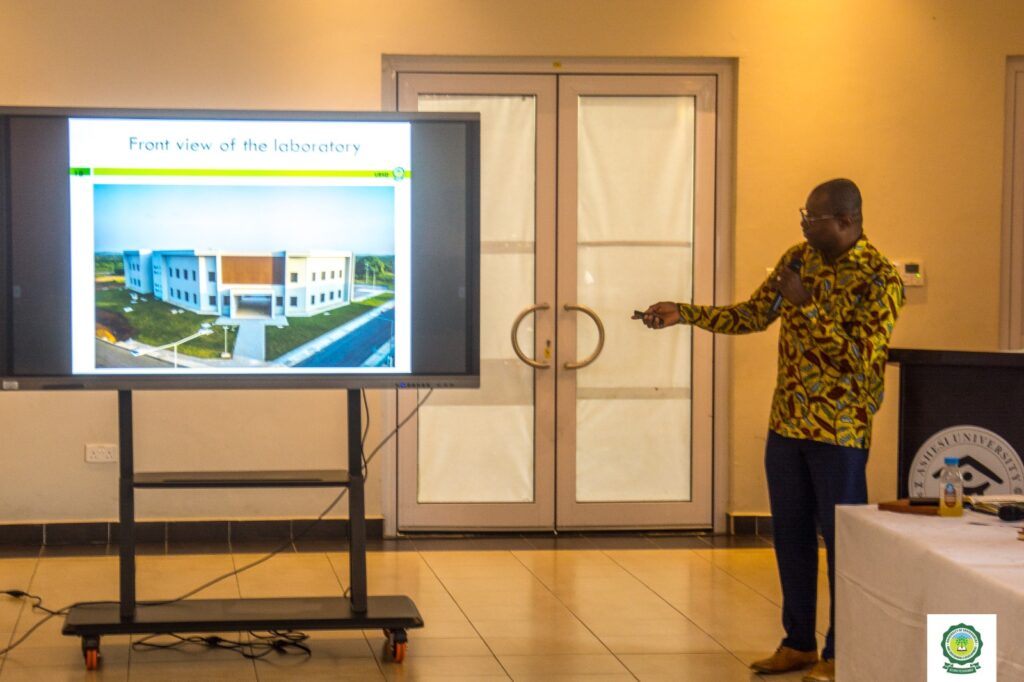
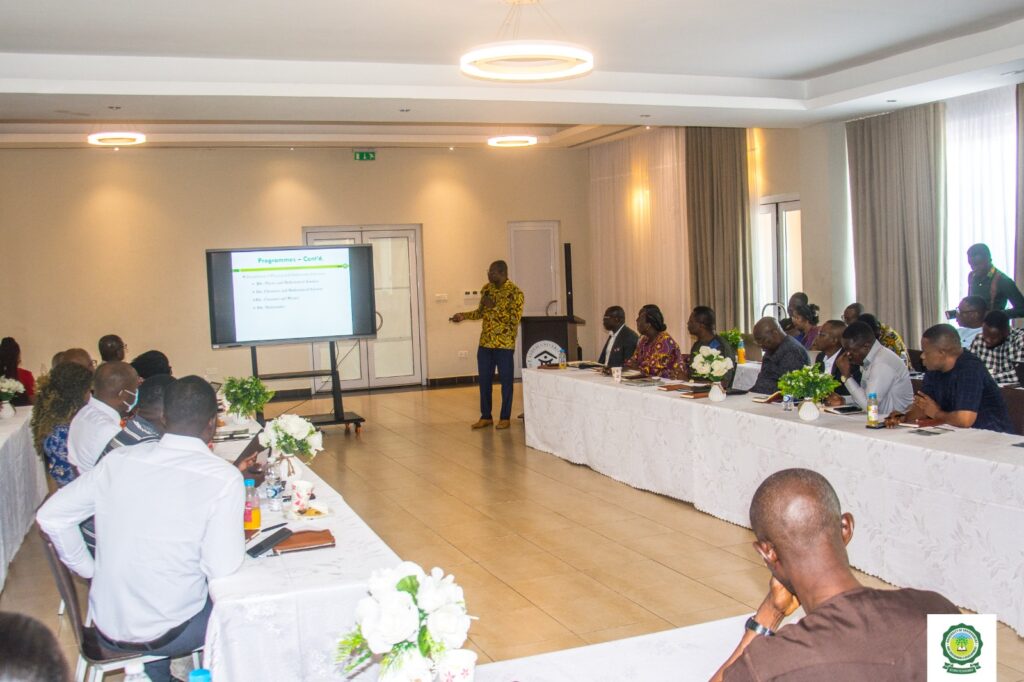
He reiterated that the bi-annual meeting between the ERCC and the tertiary institutions in the Region is to create a bond and pursue a part of networking with academic institutions, extend collaborations and establish partnership with tertiary institutions expected at bridging the gap between academia and industry.
Hon. Acheampong reaffirmed his support for the project and expressed his conviction that it has a lot of potential to improve university development and the growth of the Region as a whole. He mentioned that planning is underway to host the first Education Fair for Senior High School students in 2024, as one of the initiatives from the maiden gathering.
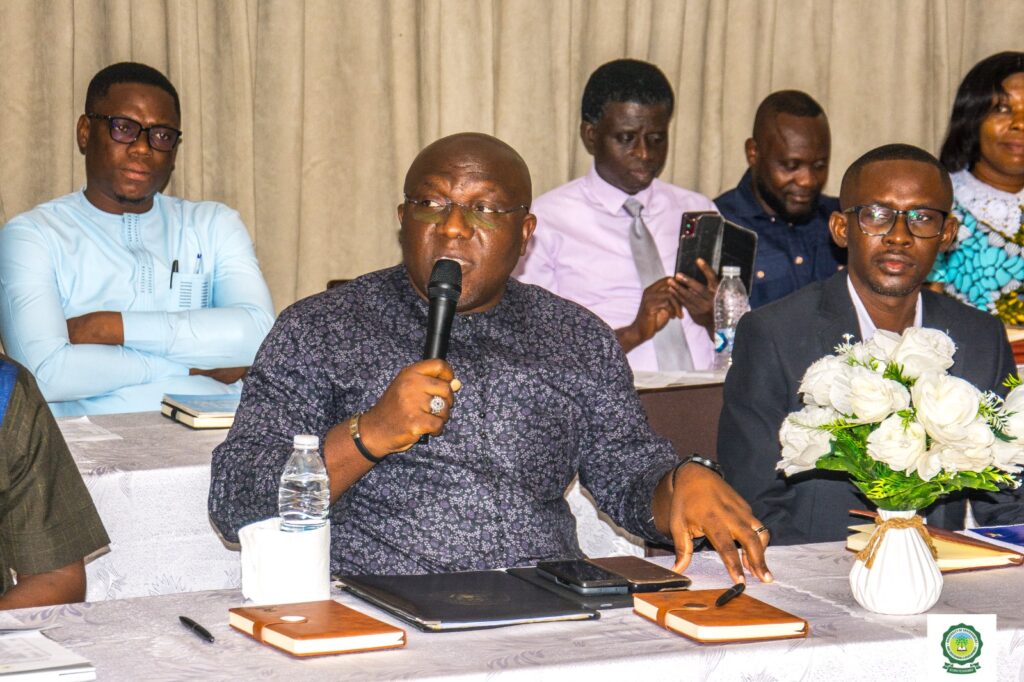
Each university was required to make a presentation on their activities. The Vice-Chancellor of UESD, Prof. Eric Nyarko-Sampson, gave the first of two speeches on behalf of UESD. He discussed the University’s background, including its mission, vision, core values, and the two Schools it currently operates: the School of Natural and Environmental Sciences (SNES) and the School of Sustainable Development (SSD).
A few of the university’s signature initiatives, such as the Community Development Challenge award, the HOPE Road Show, the Sustainable Development Conference, and the Community Based Experiential Learning (CoBEL), were also presented to the participants by Prof. Nyarko-Sampson. In addition, he announced the creation of a workshop to teach students how to build solar panels as part of the Built Environment Programme and the construction of a fish pond under the Aquaculture Management Programme.
A Senior Lecturer and Head of the Department of Academic Planning and Quality Assurance, Dr. Richard Amfo-Otu, and Dr. Lylod Larbi, Lecturer in the Department of Public Health, collaborated to put together the second presentation, which focused on: Effective Mechanisms for the Management of Municipal Waste in Ghana. It was presented by Dr. Richard Amfo-Out. He discussed the state of waste management globally, the position of the country, the worldwide strategy and focus, and the UESD method to combating the threat.
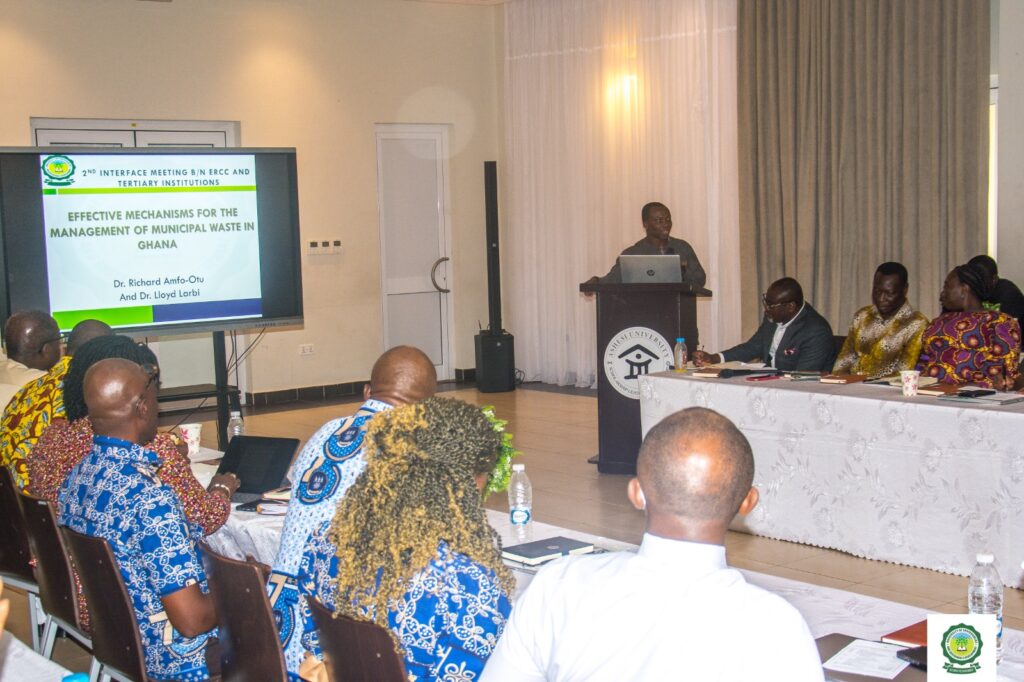
At the global level, Dr. Amfo-Otu made a staggering revelation that, more than two billion metric tons of municipal solid waste (MSW) are generated worldwide every year, and this figure is expected to increase by roughly 70 percent by 2050. It is estimated that Ghana generates an average of 0.64 kg of waste per capita per day. With a population of 30.8 million (2023), this totals to a staggering 7.17 million ton of waste generating annually.
He made some recommendations to address the menace. For national strategies, Dr. Amfo-Otu proposed the strengthening of sector governance, increase private sector participation, optimise service delivery and infrastructure, enable effective waste recovery, re-use, and recycling and establishing sustainable sector financing mechanisms
On the UESD approach to address waste management, the presentation adopted the Circular Economy Model to deal with both solid and liquid waste. This comprises; implementing solid waste segregation, improved waste management facilities, established linkages with private sector actors, sale of plastics and paper wastes and the Community Development Challenge.
On liquid Waste, the following proposals were made; the treatment of all liquid waste, recirculation and reuse of treated wastewater and Rainwater harvesting.
Overall, Dr. Amfo-Otu suggested an integrated strategy to address Ghana’s problems with municipal waste management, which included MMDAs developing effective community-level policies and strategies, increasing the capacity of their human resources, improving the infrastructure for waste management, and consistently raising public awareness.
Participants’ conversations focused on the necessity of setting up a resource centre for waste management, the need for ongoing education and orientation at the most basic level, and the attendance of district, municipal, and metropolitan directors at the meeting.
A joint secretariate will be formed to coordinate action plans between the Universities and the ERCC.
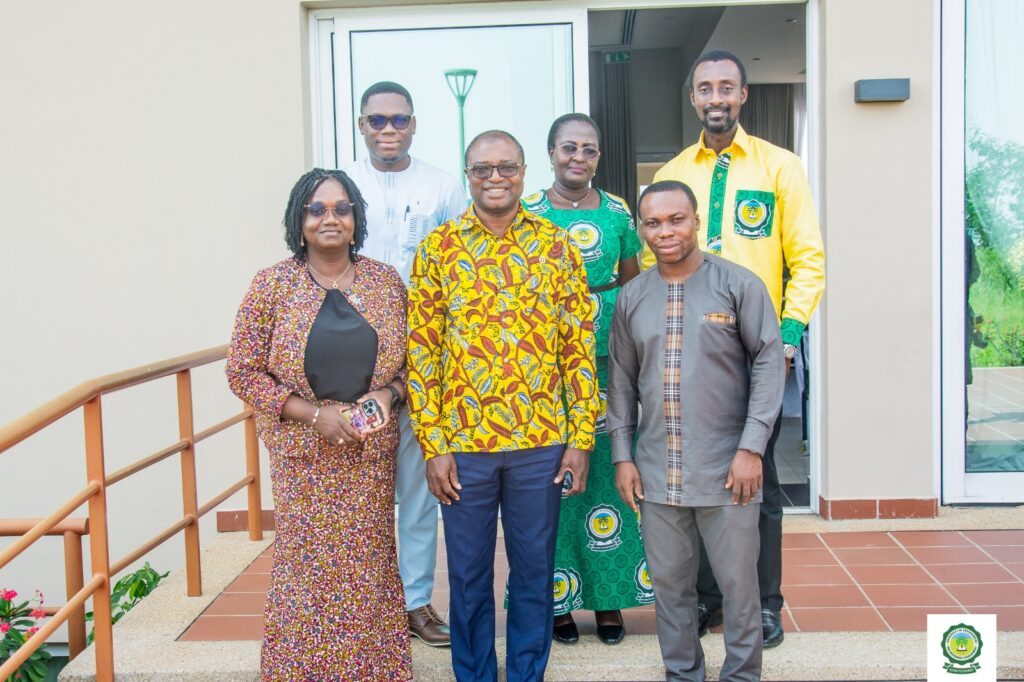
The other members of the team were; Dr. Nuworza Kugbe, Head of Department of Environment and Public Health and the Head of University Relations, Ms. Barbara M. Yakubu.

